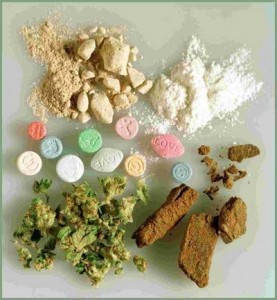Los Angeles Drug Defense Attorneys
 There are several drug related offenses that are outlined in the California Health and Safety code. Some of these offenses are eligible for an alternative disposition under Proposition 36. Proposition 36 was passed by the California voters in 2000, and allows defendants facing certain drug charges to be placed on probation and attend court-ordered rehabilitation programs instead of facing jail or prison time. Generally, those facing drug sales or transport cases are not eligible for Proposition 36. At Romero and Associates, our seasoned attorneys have been successful in keeping our clients out of prison by using Proposition 36.
There are several drug related offenses that are outlined in the California Health and Safety code. Some of these offenses are eligible for an alternative disposition under Proposition 36. Proposition 36 was passed by the California voters in 2000, and allows defendants facing certain drug charges to be placed on probation and attend court-ordered rehabilitation programs instead of facing jail or prison time. Generally, those facing drug sales or transport cases are not eligible for Proposition 36. At Romero and Associates, our seasoned attorneys have been successful in keeping our clients out of prison by using Proposition 36.
Specific drug offenses in California include:
• Possession of a narcotic
◦ It is a felony to be found in possession of a substance such as crack, cocaine, ecstasy, heroin, and even some prescription drugs without a legal prescription.
◦ The punishment for this offense can be as serious as 3 years in state prison, but this offense is eligible for Proposition 36.
• Possession for sale of narcotics
◦ It is a felony to be found in possession of illegal narcotics with intent to sell those narcotics.
◦ The police and prosecutors will look to the facts and circumstances surrounding your case to determine whether you had the intent to sell those narcotics. They generally look to the amount of the narcotics, the packaging of the substances, and possession of weapons and/or large amount of cash.
• Sale or transportation of a controlled substance
◦ It is a felony to sell, furnish, administer, give away or transport an illegal narcotic in California.
◦ Most of these cases involve an undercover law enforcement operation where an undercover police officer buys narcotics from an individual.
• Under the influence of a controlled substance
◦ it is a misdemeanor to be under the influence of an illegal narcotic including heroin, crack, cocaine, ecstasy, and prescriptions drugs without a legal prescription.
◦ Although the penalty for this offense is usually 90 days in county jail, this offense is eligible for Proposition 36
• Possession of drug paraphernalia
◦ It is a misdemeanor to be found in possession of an sort of an instrument used to administer an illegal narcotic. This includes pies, bongs, spoons, syringes, blades, and other instruments.
◦ Although the minimum penalty for this offense in 90 days in county jail, this offense is eligible for Proposition 36
With the “War on Drugs” still in full effect, countless people are affected every day by harsh drug laws and their subsequent punishments.
However, if you have been arrested and charged with a drug crime, there are ways to beat the charges or get a lessened punishment.
California Drug Crimes
Some of the more common drug crimes include:
– Possession of a Controlled Substance
– Possession for Sale of Narcotics
– Sale or Transportation of a Controlled Substance
– Possession of Drug Paraphernalia
– Possession of Methamphetamine
– Manufacturing Drugs & Narcotics
– DUI
– Marijuana Crimes
Drug Defenses
When narcotics officers make drug busts, they often:
– Violate California’s search and seizure rules
– Violate California law by using methods to entrap suspects
– Mislead judges in order to obtain search warrants
– Record misleading information in their police reports
– Arrest people without adequate evidence that the drugs belonged to that person.
Oftentimes, such mistakes made by narcotics officers can result in the suppression of evidence, which usually results in the case being thrown out of court.
Drug Diversion
For some offenders, drug diversion may be a viable option to avoid criminal punishment.
If an offender qualifies, the California Penal Code 1000 PC (known as the deferred entry of judgment—or DEJ—program) can allow a defendant to enter a drug rehabilitation program instead of entering the criminal justice system.

